The recent cold spell was a welcome sight for First Nation Communities in Northern Manitoba. While many of us here in Winnipeg may be looking forward to warmer weather, communities in the North rely on frigid temperatures to ensure the winter ice roads open each year. Winter ice roads are lifelines for Northern communities. Open for just a couple months each year, they allow First Nation communities to receive fuel, food supplies and building materials they need to last the whole year.
Winter ice roads aren’t just used to bring supplies into the community. They are also used to ship things out. Have you ever thought about what happens to waste in the North? Where does it go? The infrastructure we have to manage our waste here in Winnipeg often does not exist in Northern communities- and when it does, it comes at a great cost. In the past, many Northern communities opted to burn their waste. This was problematic because when waste isn’t sorted properly, hazardous materials can be placed in the waste site. When burned, these materials can release toxic chemicals into the air, soil and water- creating harmful and lasting health effects for the people and environment.
The Backhaul Program is a collaborative effort between First Nation communities, the First Nation Waste Minimization (FNWM) Team at the Green Action Centre, and many of the Producer Responsibility Organizations (PRO’s) in Manitoba. Producer Responsibility Organizations are product stewardship programs designed to ensure extended producer responsibility. So when a product reaches the end of its lifespan, these stewardship programs are responsible for collecting them and safely disposing of them. There are 11 PRO’s in Manitoba.
From January 18th to January 19th, members of the FNWM Team visited Bunibonibee Cree Nation and God’s Lake Narrows to provide support for their backhaul efforts. Bunibonibee has already filled three semi-trucks with waste collected from their community over the last year, with a fourth soon to be filled and sent down to the proper waste processing facilities in Winnipeg.
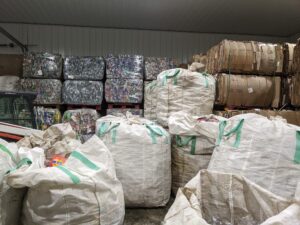
Figure 1: Collection of baled aluminum cans, cardboard and plastic from Bunibonibee Cree Nation ready to be shipped to Winnipeg.
From January 24th to January 27th, members of the FNWM Team visited St. Theresa Point First Nation and Wasagamack First Nation to provide support in their backhaul efforts. Each of these communities have well established waste management programs that include programs for End-of-Life Vehicle crushing and decommissioning, sorting of tires, aerosols, lead acid batteries, e-waste, recyclables, washers, dryers and stoves (also known as white goods). During this visit, members of the FNWM Team helped develop a load plan and prepare pallets of waste to be shipped down the winter ice road in the coming weeks. It was a great opportunity to discuss the challenges of waste management in the North, and we appreciate each of these First Nations allowing us to spend time on their lands.
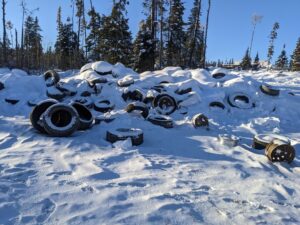
Figure 2: Collection of about 1,000 tires from St. Theresa Point First Nation to be shipped out this year on the winter ice roads.
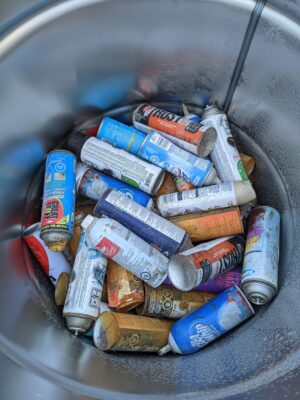
Figure 3: Collection of aerosols in a steel drum.
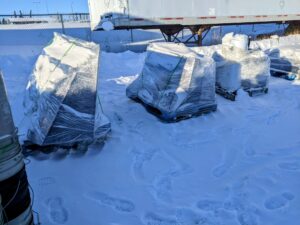
Figure 4: Pallets of E-waste ready to be loaded and shipped to Winnipeg.
The success of the backhaul program is largely dependent on a long winter ice road season, but with climate change looming, there are concerns the winter ice roads won’t be viable in the future. We must continue to be mindful of our actions and work hard to build better relationships with our lands and waters to minimize the effects of climate change and to ensure Northern communities do not continue to feel the greatest impacts.

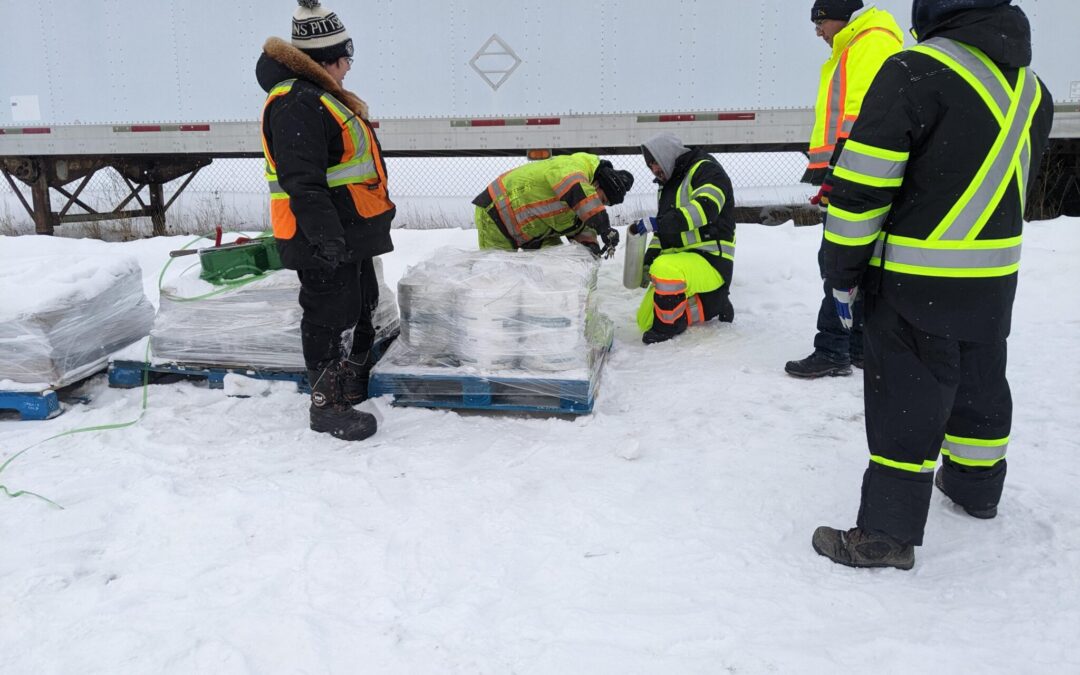


Recent Comments